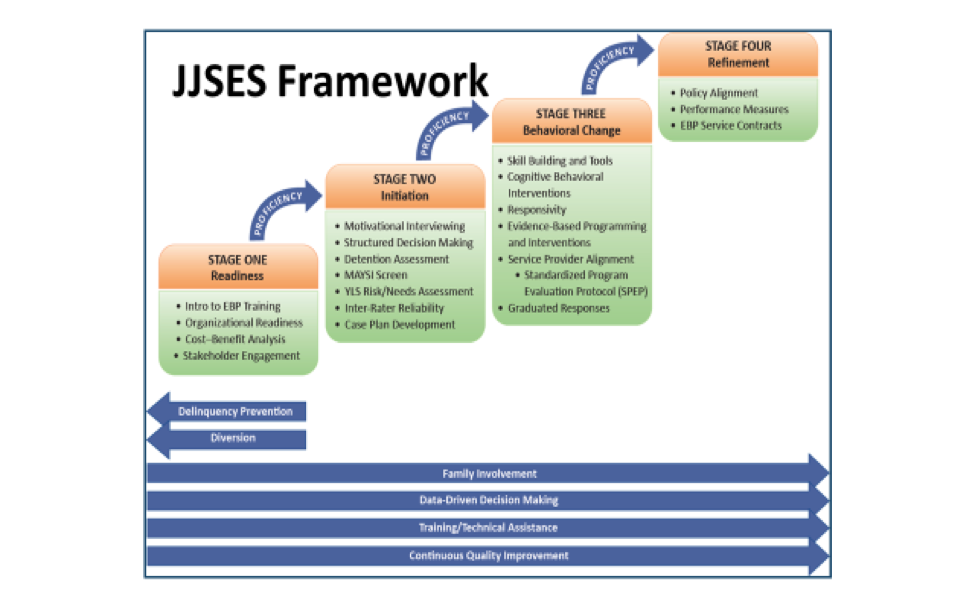System Enhancement Strategy
In 2005, Pennsylvania became the first of four states chosen to participate in the MacArthur Foundation’s Models for Change (MfC) juvenile justice system reform initiative. Although the Foundation had provided grants in the field of juvenile justice since 1996, the focus had been primarily in the areas of adolescent development, juvenile justice research, and the advancement of related laws, policies, and practices. The new focus of the MfC initiative was to assist selected states in becoming national models of juvenile justice reform. Pennsylvania was chosen because of its reputation as a progressive juvenile justice state with a favorable climate for system reform, a collaborative history and infrastructure of system partners, and a consensus about the issues to be targeted for action.
Over a five year period, significant progress occurred in addressing Pennsylvania’s three targeted areas for improvement: the coordination of mental health and juvenile justice systems; the system of aftercare services and supports; and disproportionate minority contact with the juvenile justice system. Virtually every county engaged in reform activities in one or more of the targeted areas for improvement serving to directly impact youth, and significant activity occurred legislatively and amongst state level system stakeholders to address key matters identified as part of the initiative. As the work progressed, multiple related areas of juvenile justice became involved in reform activities and new initiatives that incorporated “lessons learned” grew as a result.
The MacArthur Foundation’s direct support to Pennsylvania was scheduled to end by December of 2010. That summer, during the annual strategic planning session held with the Executive Committee of the Pennsylvania Council of Chief Juvenile Probation Officers and the management staff of the Juvenile Court Judges’ Commission, the need for a viable sustainability plan for all of the various related activities and efforts became the focus of discussion. In addition to the need for sustainability, it was also decided that any such plan should also be required to serve as an umbrella under which the entire juvenile justice system could engage. It was at this meeting that the Juvenile Justice System Enhancement Strategy (JJSES) was born, and a JJSES Leadership Team was appointed to lead the work through key elements of the transition.
Over the next two years, JJSES work focused on the development of a Statement of Purpose, the formation of a Framework and graphic illustrating the four stages of advancing JJSES, and, perhaps most importantly, the writing of the Monograph which provided the background and narrative of the entire framework. The figure below shows the four stages and the core activities to be employed therein.

At the annual Pennsylvania Conference on Juvenile Justice held in November of 2011, the afternoon plenary session introduced participants to the framework of JJSES. In the spring of 2012, a series of regional “kickoff” events were held throughout Pennsylvania, highlighted by the distribution of the JJSES Monograph. Each of the 67 counties participated in one of these events through the development of local teams of individuals representing key juvenile justice system stakeholders. It was at this time that JJSES was officially introduced into each jurisdiction.